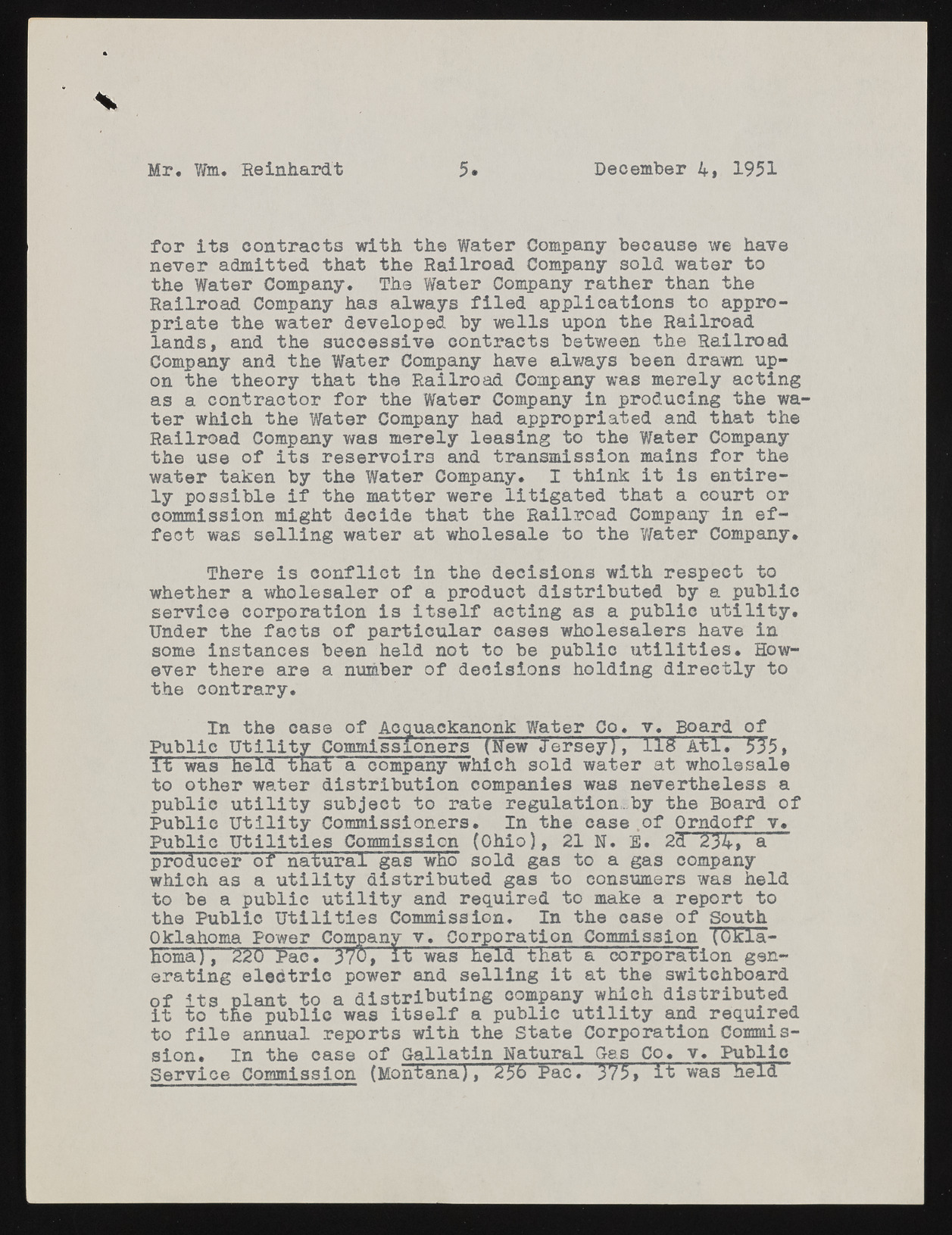Copyright & Fair-use Agreement
UNLV Special Collections provides copies of materials to facilitate private study, scholarship, or research. Material not in the public domain may be used according to fair use of copyrighted materials as defined by copyright law. Please cite us.
Please note that UNLV may not own the copyright to these materials and cannot provide permission to publish or distribute materials when UNLV is not the copyright holder. The user is solely responsible for determining the copyright status of materials and obtaining permission to use material from the copyright holder and for determining whether any permissions relating to any other rights are necessary for the intended use, and for obtaining all required permissions beyond that allowed by fair use.
Read more about our reproduction and use policy.
I agree.Information
Digital ID
Permalink
Details
Member of
More Info
Rights
Digital Provenance
Publisher
Transcription
Mr. Wm. Reinhardt 5 December 4, 1951 for its contracts with the Water Company because we have never admitted that the Railroad Company sold water to the Water Company. The Water Company rather than the Railroad Company has always filed applications to appropriate the water developed by wells upon the Railroad lands, and the successive contracts between the Railroad Company and the Water Company have always been drawn upon the theory that the Railroad Company was merely acting as a contractor for the Water Company in producing the water which the Water Company had appropriated and that the Railroad Company was merely leasing to the Water Company the use of its reservoirs and transmission mains for the water taken by the Water Company. I think it is entirely possible if the matter were litigated that a court or commission might decide that the Railroad Company in effect was selling water at wholesale to the Water Company. There is conflict in the decisions with respect to whether a wholesaler of a product distributed by a public service corporation is itself acting as a public utility. Under the facts of particular cases wholesalers have in some instances been held not to be public utilities. However there are a number of decisions holding directly to the contrary. Xn the case of Aoquackanonk Water Co. 7» Board of Public Utility Commissioners (New Jersey}, 118 Ail. 5551 i't was held that a company which sold water at wholesale to other water distribution companies was nevertheless a public utility subject to rate regulation, by the Board of Public Utility Commissioners. In the case ,of Orndoff v. Public Utilities Commission (Ohio), 21 N. 1. 2d" "234, a producer of natural gas who sold gas to a gas company which as a utility distributed gas to consumers was held to be a public utility and required to make a report to the Public Utilities Commission. In the case of South Oklahoma Power Company v. Corporation Commission (Oklahoma), 220 Pao. 370, it was held that a corporation generating eledtrio power and selling it at the switchboard of its plant to a distributing company which distributed it to tne public was itself a public utility and required to file annual reports with the State Corporation Commission. In the case of Gallatin Natural Gas Co. v. Public Service Commission (Montana), 2 56 Pac. 375» it was held

